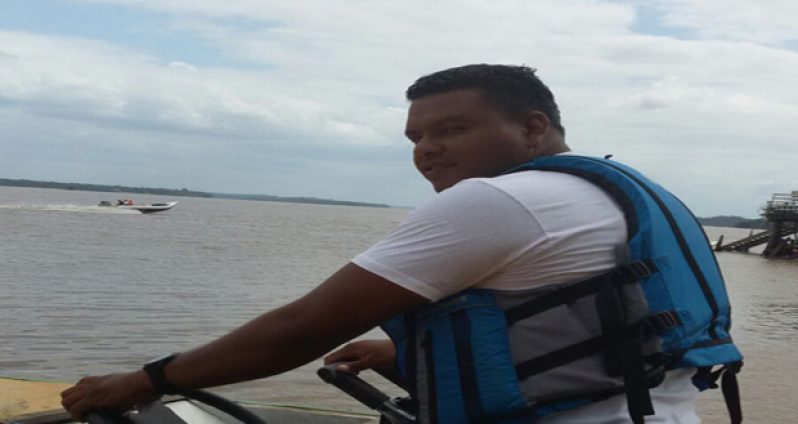AS the sun went down, the steady thump in my heart increased with the captain’s every insistence that the boat go faster.
The river’s boisterous waves were playing havoc with my stomach as I gripped the edge of my seat with my now soaking-wet, trembling fist to keep myself from being pitched across the boat.
I prayed with every fibre of my being for this ordeal to come to an end, but every time I tried to remain calm, the boat came under attack again by another angry wave. It was as if the river was upset with the captain and chastising him for daring to have his boat disturb its night’s rest.
El Capitán, clad in a yellow raincoat, stood on the deck, squinting in the dark to create some level of visibility in the pitch blackness of the river.
Being drenched by the downpour, and challenged by the rough waves, yet still he managed to keep his bare feet gripped firmly to the iron bars that accessorised his deck. He also managed to keep his composure amid the mayhem that this rough journey was creating on the boat, the interior of which had now become pitch black.
Because of that horrific experience, my maiden trip across The Mighty Essequibo might well be my last, but it served to heighten my curiosity as to how a captain endures that kind of ordeal on a daily basis.
GOD’S GRACE
In an exclusive interview with the Guyana Chronicle, Captain Vadym Joseph revealed that it is only by God’s Grace that he is able to endure the extreme roughness of The Mighty Essequibo.
Even with his decades-long experience as a captain, he said, it has never occurred to him to be complacent, as experience can never equate to the power of the rough waters when the tide is low. “It is just me and God out there,” Joseph said. “And it is He that brings me through a safe journey every time.”
Starting as a bowman, then a sailor, Captain Vadym said that there is no particular timeframe in which one can equip themselves with the skills and courage of becoming a captain, and to have the full responsibility of taking a boat 70 miles up the Essequibo River.
“It can be a month or five years; one has to know within themselves when they are truly ready to graduate from being a bowman to a captain,” he posited.
BEGINNER’S LUCK
Upon gaining the necessary experience, he then applied for his captain’s licence before buying the vessel he now operates or sometimes hires out to others.
He said he carefully had to learn the various channels of the river, and to carefully manoeuvre the boat to suit the different tides, and the condition of the water.
Apart from this, the passenger’s display of comfort would either serve as a boost or a deterrent. “Sometimes the passengers would come and ask who the captain is,” he said. “And if they don’t feel comfortable with you, they would go into another boat. And this can dampen your spirit, and make you question if you are really ready to be operate this boat.”
After having several frightening experiences during his career, Captain Joseph said what gave him the courage to continue operating despite the many risks being taken, are the compliments he receives from passengers after a particularly horrific journey through the rough waters.
This, he said, makes him realise just how dependent persons are on him to take them to their destination safely, even during inclement weather conditions.
ONE RAINY NIGHT
Recalling one of those nights when he was highly complimented for battling with a rain storm and taking a boat-load of passengers safely to Bartica, Captain Joseph said it was as if God Himself was the real captain of the vessel that night.
“I was standing in my captain deck, braving a fierce rainstorm,” he said. “It was raining heavily, and the lightning and thunder were flashing and rolling.
“It was a real terrible storm, and the winds were creating a roller-coaster with the boat.
“There was very little visibility amid the storm, and it was me and God out there, steering this boat.
“I prayed earnestly until I reach Bartica, and the ‘thank-you’ I received from the passengers were a real source of encouragement to me.”
Even though it is a requirement to equip a vessel with lights, he said that such lighting would only be beneficial to the passengers, as it would create a visual of the river; but for the captain, it would be more of a hindrance, as the glare from the light would make visibility poor.
He revealed that it is better to operate the boat in darkness, as it is in the knowing of the bearings of the river is what carries you through and not lighting.
And even though the vessel is called a ‘speedboat’, Captain Joseph said that when the going gets tough, it is better to go slow as it would minimize the slamming and jerking of the boat to a certain extent, but it will never fully eradicate that effect. In addition to this safety procedure, it is also adviseable that the boat runs as close to land or ‘near shore’ as possible, in case a tragedy should occur. It is also easier to manoeuvre the boat near shore, as the water is usually rougher in the middle.
Captain Joseph said that the daily operation of a speedboat can be quite challenging, but he tends to put the reward in front, and will continue to serve his passengers in this way.
By Vanessa Braithwaite




.jpg)










